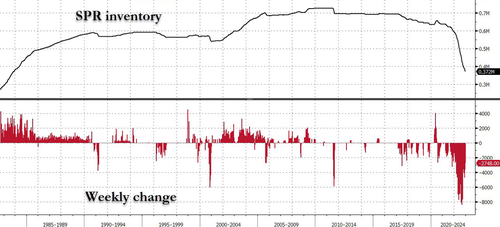Last week, conservative activist group Project Veritas released a video featuring a man alleged to be Pfizer’s head of research and development. The video showed the man saying that he and others at Pfizer discussed deliberately mutating the SARS-COV-2 virus to develop tailored vaccines to treat them. Whether this “investigation” is true or not (Project Veritas has been found guilty of using deceptive practices in the past), the social media firestorm that resulted led Pfizer to put out a disclaimer that is somewhat disturbing on its own.
We don’t think anyone should be manipulating or engineering this or any other virus. Instead, we think drug companies and others should work with what comes from nature. There are plenty of SARS-COV-2 subvariants around. And both Pfizer and Moderna have said they can produce new vaccines to cover emerging variants. And yet, Pfizer now admits to conducting “research where the original SARS-COV-2 virus has been used to express the spike protein from new variants of concern.”
Why is this necessary, and if more than one spike protein is used at once, couldn’t that accidentally create a virus worse than the one we are already dealing with? Why is Pfizer in the process of studying potential resistance to its drug, Paxlovid, using similar experiments? It said for the Paxlovid study, “in a limited number of cases when a full virus does not contain any known gain of function mutations, such virus may be engineered to enable the assessment of antiviral activity in cells.”
We think Pfizer and others should stick to incubating SARS-COV-2 with Paxlovid in their biosafety level 3 lab without inducing mutations. To us, that may be a form of gain of function. The risk of a lab leak is far too high no matter what precautions are taken.
Manipulating viruses to gauge their potential to infect or kill us is not a new problem but it remains highly problematic. In the past, Dr. Anthony Fauci, former head of the National Institute of Allergies and Infectious Diseases, has justified gain of function research on so-called Enhanced Potential Pandemic Pathogens (EPPP) to assess just what steps it would take for an animal virus to impact humans.
We disagree with this approach for four reasons. First, there are suspicions that gain of function of some kind may have been the direct cause of the very pandemic we are still trying to cope with and exit now. The furin cleavage site, which enables the SARS-COV-2 virus to attach easily to cells, is not typically found on a virus of this kind in nature. Second, we have learned so much in the field of virology by studying actual viruses (including SARS-COV-2) that the need to provoke viruses to gauge their potential is markedly reduced. Third, vaccine and therapeutic development can occur in real time based on the latest technology.
Fourth, and perhaps most importantly, there is an international consortium of scientists based in the U.S., China and elsewhere which has supposedly pursued highly supervised and controlled research on EPPP — but the fact is that the National Institutes of Health and the U.S. government have limited ability to oversee research here, and zero ability to oversee it in other countries, especially in China.
We also believe NIH’s highly restricted definition of what they consider to be gain of function research is contrived to allow expanded true gain of function research to go unchecked. We applaud the recommendation by the National Science Advisory Board for Biosecurity this month to expand the definition of risky research to include more potential pathogens, including some plants and animal vectors that are not enhanced or have yet to infect humans easily. We agree with their conclusion that the current definitions of gain of function research are too narrow with an “overemphasis on pathogens that are both “likely” transmissible and likely “highly” virulent.
But we are still concerned about the focus on “supervision” as a sufficient control justification for this research. We remain unconvinced that any supervision is foolproof, even under the strictest conditions of level 4 biosafety labs such as those found at the Centers for Disease Control and Prevention and the U.S. Army Medical Research Institute of Infectious Diseases, and certainly not anywhere else.
Species barriers are put there by nature for a reason. Science should always be guided and restricted by strict moral and ethical principles. We are calling for a moratorium on all gain of function research, where it is forbidden to deliberately alter a pathogen to provoke or assess its ability to spread among or sicken humans. This applies to research going on at pharmaceutical companies, in universities and anywhere else.
If gain of function didn’t cause this ferocious pandemic, it most certainly can cause the next one.
Marc Siegel MD is a professor of medicine and medical director of Doctor Radio at NYU Langone Health. He is a Fox News medical correspondent and author of the new book, “COVID; the Politics of Fear and the Power of Science.”
Robert Redfield, M.D., is an American virologist and a senior science advisor for Novavax. Redfield served as the director of the Centers for Disease Control and Prevention and the administrator of the Agency for Toxic Substances and Disease Registry from 2018 to 2021.
https://thehill.com/opinion/healthcare/3840791-to-prevent-a-deadlier-pandemic-pause-gain-of-function-research/
